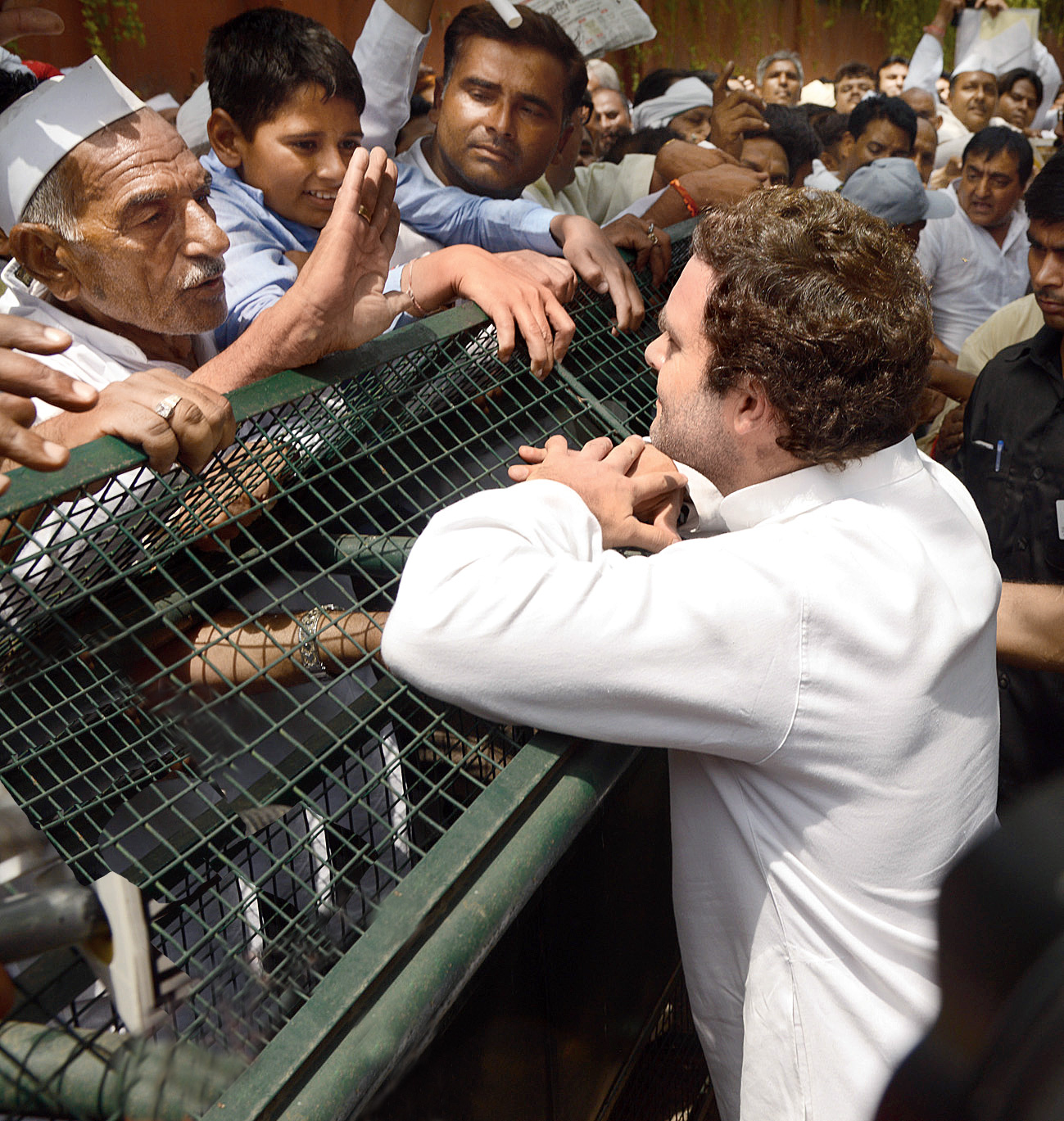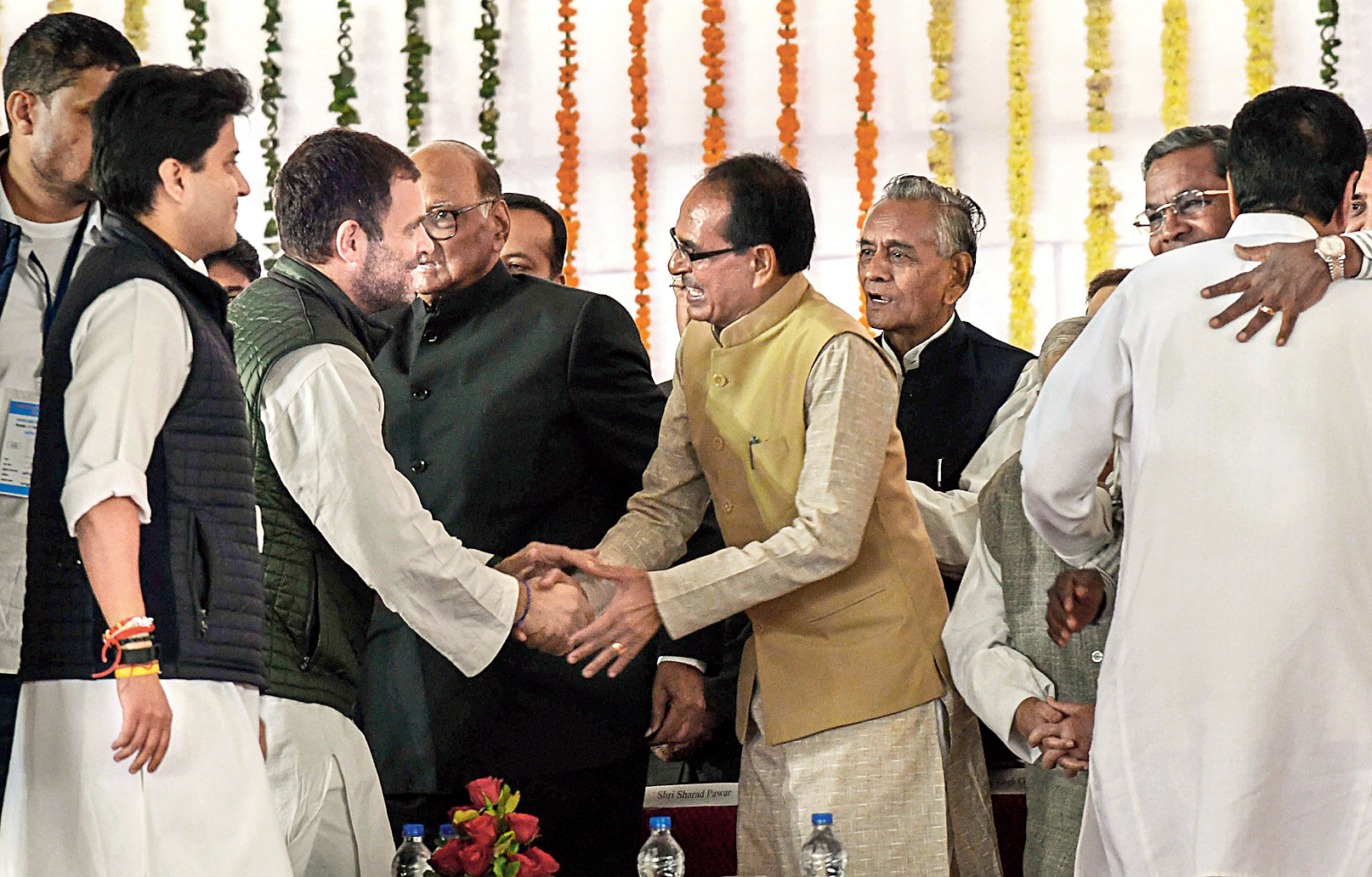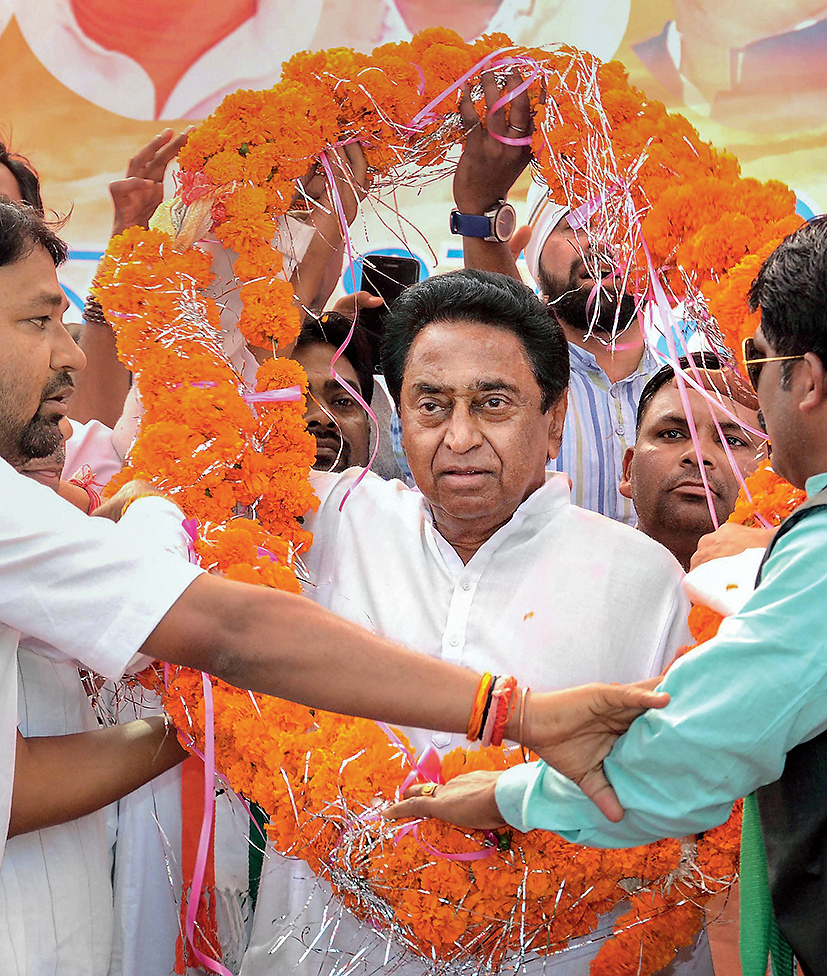Sometimes democracy has a way of catalysing parties and issues in an almost alchemical way. The results of the mid-term elections, while a cliffhanger in many ways, redeemed the Congress from looking autistic. There was a sense that the effervescence on the ground had cured the inanity of leadership. Secondly, the Bharatiya Janata Party, which till now sounded and behaved like an inevitable juggernaut, now appeared like a jaded behemoth. A new space of rethinking was created, asking each party to redefine itself. It is almost as if a collection of bad movies gets revitalised through new scripts creating a different set of anticipations. The question, particularly before the Congress, is now that it has been gifted a pre-Christmas hamper of hope, can it concretise it into a lifeworld of creative strategies?
The question is not merely one of victory, but the challenge of how a party gone stale for a decade revitalises itself. The question is not one for Rahul Gandhi alone because the Congress has to reconstruct Rahul as Rahul reworks the Congress. Such a dialogue of reforms demands a set of hearing aids. The Congress must learn to listen to the silences of politics and the distortions within itself. It must now construct itself not as a party of the past but a party of the future and as a party with a future. Here it has one distinct advantage. The BJP is a party built on the bile, the negativity of the past as a discourse. It has no ideology of the future. In fact, it has no sense of the future. The Congress made history but the BJP is a party bogged down with history because for decades it was not a party of history. The Congress must hijack the future as a discourse and a constituency from the BJP. While the BJP sounds like an endless 19th-century tape, the Congress must enter a different future and it can do so only if it takes risks.
Firstly, it has to stop its game of soft Hinduism as an intermediate strategy. A party which has been a trustee of minorities and dissenting ideologues must rework its faith in such constituencies. It must realise that its secularism is as empty as its electoralism. It must transform its Western ideas of secularism adapted to Protestant-Catholic battles to a pluralistic idea of religion and worldviews. Rahul needs a sense of civilisation, of cosmologies, not information bites on gotras. Anchored in the vitality of pluralism and diversity, the Congress can build an alternative imagination.
An alternative imagination needs a sense of the future, a sense of the exhaustion of old possibilities. Out of the silences of the last decade of politics, the Congress has to create a new idea of environment which links livelihood to climate change and agriculture to sustainability. Drought and disasters have been routinised for too long. One needs to go beyond stagnant notions of poverty captured through standard indices to the varieties of suffering and vulnerability. A theory of listening has to be extended into a theory of feeling where the Congress becomes the new sensorium of the imagination and anxiety of minorities, marginals, dissenters, where a Dalit imagination captures the holistic imagination of the oppressed. What the Congress must create is a dialogue not just between dominant and defeated but a conversation between varieties of suffering and alienation, where Dalits, tribals, obsolescent workers and craftsmen, and women discuss a common vision beyond the particularity of interests, where the Congress moves from interest group politics to a wider vision of a decent society. Here one is going beyond the specificities of representation. One is arguing for a dialogue of representations; creating a Congress as a representation of the richer whole of dreams and anxieties, extending far beyond an insular nationalism and a parochial Hinduism. Without a wider vision for 2019, the contest will get entrapped in a play of personalities and factional politics. The BJP can enact it better but the Congress has to show the country has outgrown it.
The Congress has to invent a new imagination, a new India of ideas which is civilisational and contemporary. Jousting with the BJP and its insularity is not enough. Narendra Modi’s noise overwhelms argument, his bullying rhetoric distracts from real issues like water, drought, employment, agriculture. The Congress has to be a constituency of new reworked imaginations. It is no longer just an Opposition but a dream of an alternative India. This demands a ground-level politics and a hard amount of radical intellectual thinking going beyond the unnecessary dualism of Right and Left.
The party has to aggregate the new pluralism of peasant, tribe, gender, worker, the elderly, youth, unemployed, the exploited teacher, the obsolescent technologist into a coherent holism, not into a mechanical grid of patriotism and nationalism that the BJP has confined us to. The future is the one constituency the BJP is illiterate about. By recycling a false sense of the past, the BJP has virtually destroyed the renewability of cultures. This can’t be an identity game; a drawing room encounter about gotras; it has to dig deep into a civilisational imagination, not merely nation-state imaginations. The recovery and rebuilding of the Congress has to be a miniature reconstruction of ideas. We have to remember that in spite of the primacy of Gandhi, the Congress leadership was a patched quilt of creative people. One has to seek this multiplicity today in the way that the Aam Aadmi Party tried for a short while. Without such an intellectualist charter, mere politics will not work. A repetitive politics is both humdrum and alienating. The Congress has to surprise India with a new package of ideas, a set of policies that reinvents and rebuilds democratic imaginations. One has to remember that nostalgia is as dangerous for the Congress as false history was poisonous for the BJP.
The Congress needs to recreate a weave of issues between neighbourhood, locality, region, State, nation, and yet create a new planetary consciousness where livelihood, nature, water link to issues of climate change. It has to go beyond the current idiocy of the smart city and its automatic correlate, the smart village. The Congress’s greatest contribution may be to rethink the future city as a correlation of forces between town and country, consumption and waste, as a reinterpretation of energy systems where livelihood as a concern is central. It is also time for the Congress to rethink the structure of the university in this age of the knowledge society. Such policies cannot flow from technocratic think-tanks alone. It needs an organicity of the intellect, where the ideas and values of the ashram complement the policy thinking of think-tanks. Maybe it is time the Congress helps the Gandhian movement to rethink the idea of the ashram, to transform it from a museum of mnemonics to a site for new thought experiments. In its current state the Congress does not have the wherewithal to do it. It needs the help of civil society, social movements and the university to rework a new reciprocity between civilisation, Constitution and syllabus. Today the Congress is a modest party with a lot to be modest about. In reinventing itself, it will find confidence and the power to create a new story about a future. To dream of less would be the choice of mediocrity that the future may not forgive.
The author is an academic associated with Compost Heap, a network pursuing alternative imaginations













